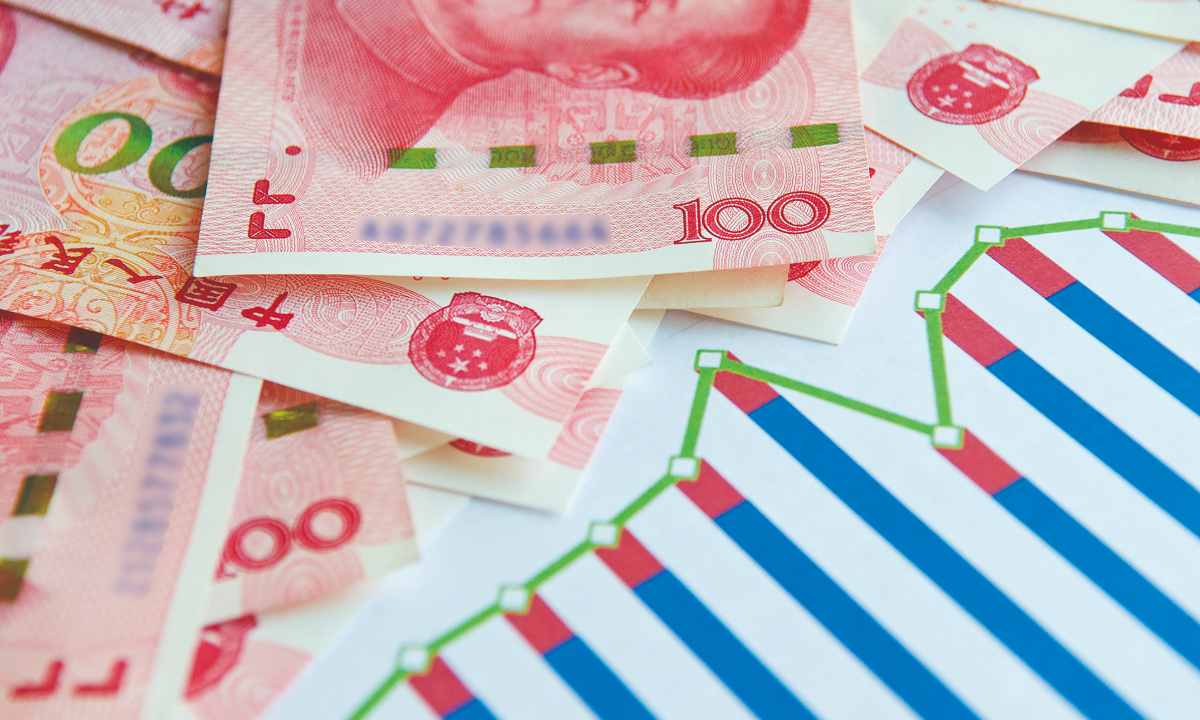
Photo: IC
China's foreign exchange reserves totaled $3.0549 trillion at the end of August, down $49.2 billion from July, a drop of 1.58 percent amid the US dollar's unusual strength and the depreciation of other currencies.
In August, cross-border capital movements were orderly and domestic forex supply and demand remained basically balanced, Wang Chunying, deputy administrator of the State Administration of Foreign Exchange (SAFE), said on Wednesday.
In the international financial market, affected by expectations for some major countries' monetary policies and other factors, the US Dollar Index has surged, while the prices of the other currencies and financial assets plunged in value.
Due to the combined effect of exchange rate conversions and changes in the asset prices, the scale of the foreign exchange reserves, in terms of dollars, decreased, Wang explained.
The yuan fell 2.2 percent against the dollar in August, while the dollar rose 2.7 percent against a basket of other major currencies, according to a Reuters calculation.
On Wednesday, the yuan further softened to around 6.99 per dollar.
Amid the US Federal Reserve's aggressive policy tightening, a certain degree of yuan depreciation is normal, but volatility has remained within a controllable range, Dong Dengxin, director of the Finance and Securities Institute of the Wuhan University of Science and Technology, told the Global Times.
From January to August, the euro lost 12 percent of its value, the pound depreciated by 14 percent and the yen depreciated by 17 percent, while the yuan lost 8 percent, according to data from Wind.
Two-way fluctuations of the yuan will be normal in the short term, but the room for further yuan depreciation against the greenback is limited, given that the US economy is slowing down while the Chinese economy is likely to see a moderate recovery, analysts said.
To improve financial institutions' ability to use foreign exchange funds and better maintain the yuan's stability, China's central bank said on Monday it would cut the amount of foreign exchange reserves that financial institutions must hold in the bank.
The external environment is becoming more complex and severe, downward pressure on the global economy is increasing, and international financial markets are fluctuating violently, Wang said.
As China has effectively coordinated epidemic prevention and control along with economic development, and implemented a series of policies to stabilize the economy, China's foreign exchange reserves are expected to remain stable, Wang said.
China held 62.64 million fine troy ounces of gold at the end of August, unchanged from the end of July. The value of China's gold reserves fell to $107.49 billion at the end of August from $109.84 billion at the end-July, SAFE data showed on Wednesday.

